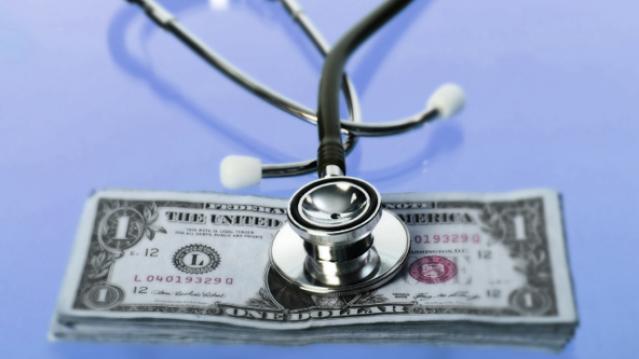More Americans Have Health Insurance (Whether They Want it or Not)

The latest Gallup survey shows the rate of American adults without health insurance dipped to an all-time-low of 11.9 percent in the first quarter of this year, down from 12.9 percent at the end of 2014 and 18 percent in mid-2013. That means nearly nine in 10 adults now say they have health coverage, which Gallup attributes primarily to provisions in the Affordable Care Act.
So far, the White House estimates that more than 16 million people have gained health coverage through Obamacare.
Related: Obamacare Goes to Court as Uninsured Rate Hits New Low

Gallup notes that the uninsured rate is likely to continue trending downward this year as more people sign up for coverage during the special enrollment period, which ends on April 30. The administration granted extra time to people who were unaware of the law’s individual mandate requiring everyone to have health coverage or be subject to a tax penalty.
The pollsters noted that there are, of course, other factors that have helped lower the percentage of uninsured people in the U.S., including the improving economy and a falling unemployment rate. Even so, they suggested that Obamacare played the largest role: “The uninsured rate is significantly lower than it was in early 2008, before the depths of the economic recession, suggesting that the recent decline is due to more than just an improving economy.”
Related: Poll Shows Why Obamacare Ruling Could Be Devastating
The poll of 43,575 adults over the first three months of the year suggests that the health care reform law is succeeding in its primary goal of expanding access to coverage, though questions remain about just how affordable that care is — and whether the law will be undone by a Supreme Court ruling, scheduled to be announced in June in the case of King v Burwell. The high court’s interpretation of language in one sentence of the Affordable Care Act will determine whether roughly 8 million people will lose health insurance subsidies. Read about the case here.
Top Reads from The Fiscal Times:
- 6 Popular Social Security Myths Busted
- The Battle Is On to Save Military Bases from Closure
- The 10 Worst Places for Obamacare in 2015
Small Business Owners Say They’re Raising Worker Pay
A record percentage of small business owners say they are raising pay for their workers, according to the latest monthly jobs report from the National Federation of Independent Business, based on a survey of 10,000 of the group’s members. A seasonally adjusted net 35 percent of small businesses say they are increasing compensation. “They are increasing compensation at record levels and are continuing to hire,” NFIB President and CEO Juanita Duggan said in a statement accompanying the report. “Post tax reform, concerns about taxes and regulations are taking a backseat to their worries over filling open positions and finding qualified candidates.”
The US Is Running Short on More Than 200 Drugs

The U.S. is officially running short on 202 drugs, including some medical staples like epinephrine, morphine and saline solution. “The medications most vulnerable to running short have a few things in common: They are generic, high-volume, and low-margin for their makers—not the cutting-edge specialty drugs that pad pharmaceutical companies’ bottom lines,” Fortune’s Erika Fry reports. “Companies have little incentive to make the workhorse drugs we use most.” And much of the problem — “The situation is an emergency waiting to be a disaster,” one pharmacist says — can be tied to one company: Pfizer. Read the full story here.
Chart of the Day: Could You Handle a Sudden $400 Expense?

More Americans say they are living comfortably or at least “doing okay” financially, according to the Federal Reserve’s Report on the Economic Well-Being of U.S. Households in 2017. At the same time, four in 10 adults say that, if faced with an unexpected expense of $400, they would not be able to cover it or would cover it by selling something or borrowing money. That represents an improvement from 2013, when half of all adults said they would have trouble handling such an expense, but suggests that many Americans are still close to the edge when it comes to their personal finances.
Kevin Brady Introduces Welfare Reform Bill

The Tax Policy Center’s Daily Deduction reports that Rep. Kevin Brady (R-TX), chair of the House Ways and Means Committee on Friday introduced The Jobs and Opportunity with Benefits and Services (JOBS) for Success Act (H.R. 5861). “The bill would rename the Temporary Assistance for Needy Families (TANF) program and target benefits to the lowest-income households. Although the House GOP leadership promised to include an expansion of the Earned Income Tax Credit as part of an upcoming welfare reform bill, this measure does not appear to include any EITC provisions.” The committee will mark up the bill on Wednesday.


